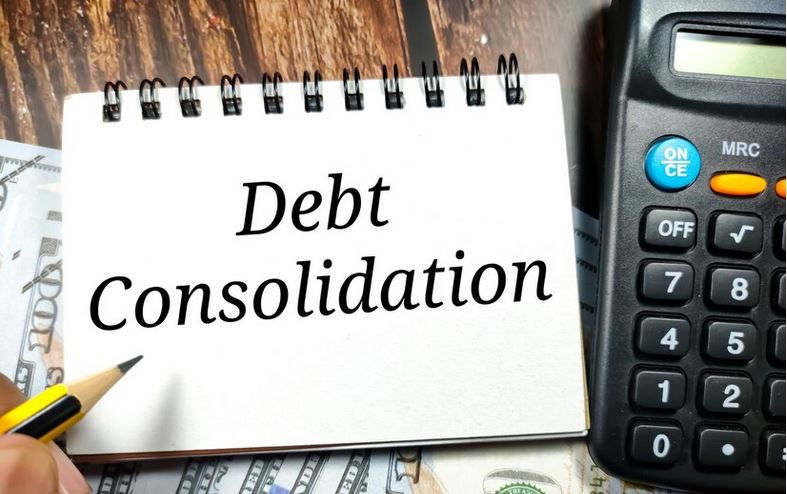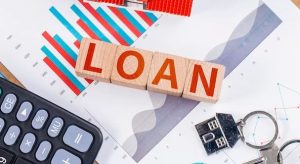Imagine having multiple debts – student loans, car loans, unpaid medical bills, credit card debt, you name it. Frankly, it can be hard to keep up with the payments, and at times, the fear of missing payments may compel you to consider consolidating your debt. But wait a minute, is debt consolidation a good idea?
Well, debt consolidation is never a good idea as higher interests and a prolonged repayment period often accompany it. Moreover, the debt doesn’t go away; your bad money habits don’t change, and you risk losing valuable assets.
For such reasons, which I’ll explain later, we don’t recommend debt consolidation. Besides, there are still other debt payoff strategies you can try out to pay off your debt that don’t carry the risks that debt consolidation carries.
This guide shall help you understand what debt consolidation is, its pros and cons, when you should consider it, and when not to. We’ll also look at the alternative to loan consolidation as it’s not the debt payoff strategy we recommend. Let’s dive in!

What’s Debt Consolidation?
Debt consolidation combines multiple debts into a single monthly payment for a more streamlined process. Though the debts don’t go away, you don’t have to keep up with various payments but only one.
You are probably excited after hearing that, but don’t be just yet. It’s not always rosy, as debt consolidation has its fair share of concerns, which I’ll share in a few.
Types of Debt Consolidation
Debt consolidation comes in different forms or categories, and the most notable ones are:
a) Debt Consolidation Loan
Most people think of A debt consolidation loan when they hear ‘debt consolidation.’ A debt consolidation is a personal loan you use to pay all your other loans. Usually, you get a consolidation loan from a bank or P2P lender.
Debt consolidation loans may come in either of these two forms:
- Secured consolidation loans – Secured debt consolidation loans are obtained against an asset such as a house, car, or land. The danger is that the lender may come for the asset once you fail to pay the loan, making it an awful idea.
- Unsecured consolidation loans – Unlike secured consolidation loans, unsecured debt consolidation loans don’t require you to put up any collateral. However, these loans attract the highest interest, which is often more than the rates of your original loans.
b) Home Equity Line of Credit or HELOC
A HELOC is a type of secured loan that you obtain against the current value of your home. You trade a part of your home for the loan until you repay it. That makes it a trap, as you could quickly lose your home once you fail to pay the loan.
Nothing is worth losing your home for. Consequently, we don’t recommend it. There are better ways to go about it, and I’ll share them with you.
c) Credit Card Balance Transfer
A credit card balance transfer involves combining all your payments into one. Though the initial interest is often low, it increases quickly and becomes too expensive. For that reason, this type of debt consolidation is not worth it.
d) Student Loan Consolidation
As the name suggests, a student loan consolidation combines all federal student loans into one huge payment. This may be the only debt consolidation idea we recommend, but it’s on a case basis.
We recommend it when it involves only federal student loans, not private ones. Moreover, it’s only ideal when you have multiple loans with varying high interest rates. I’ll share more about student loan consolidation later.

Pros and Cons of Debt Consolidation
A consolidation loan has its fair share of pros and concerns. Let’s explore them.
Pros of Debt Consolidation
Generally, here are the advantages of consolidation loans:
- One payment—A consolidation loan allows you to combine multiple debts into one payment, on which you can focus solely. You don’t have to worry about missing numerous payments, but just one.
- Lower initial rates—The initial interest rates for debt consolidation loans are usually lower, which makes it easy to unify your loans and start making one payment. But as I have mentioned, this is only in the initial stages.
- Simplified payment – Since you channel your payment efforts on one debt, the payment process is more straightforward. You can easily track and Budget for the payment.
- Fixed payoff schedule – Now that you only have one payment, you can easily plan for it in advance. It becomes easy to include it in your monthly Budget.
Cons of Debt Consolidation
Here are the concerns that come with obtaining a consolidation loan:
- Higher interest in the long run—Ultimately, paying for a consolidation loan is costlier than tackling the debts individually. So, don’t let the initial lower rates fool you; it’s likely to become expensive in the long run.
- Longer debt repayment term – You likely won’t get out of debt quickly once you consolidate your loans. Since you only have one debt to worry about, it often takes longer to pay.
- Negative impact on your credit score—A consolidation loan keeps you in debt longer, which means it may take a long time before you can fix your credit score. Once the rates start to rise, it may be hard to keep up with them, and if you miss a payment, it negatively affects your credit record.
- It doesn’t eliminate the debt – A consolidation loan doesn’t take away the debts. It only unifies them into one big payment but doesn’t do away with them. You still stay in debt until you pay the last coin.
- Expensive penalties –It’s always problematic when you miss a payment as you have to pay a higher fee. It’s even worse when you cannot pay entirely, as the lender may result in severe actions such as taking your assets in case of a secured debt consolidation loan.
Is A Debt Consolidation Loan a Good Idea?
Despite its advantage of combining several debts into one payment, lower initial rates, simplified payment, and fixed payoff schedule, a consolidation loan is generally not a good idea, and here are five reasons why:
1. You are likely to pay higher interest in the long run
Initially, consolidation loans come with lower interest rates, which is a trap. Over time, the rates become too expensive to keep up with. So, it’s an awful idea to consolidate your loans.
2. You stay in debt longer
The other reason debt consolidation isn’t a good idea is that it keeps you in debt for long. Paying for one colossal debt takes much longer than several smaller debts.
3. Your debt doesn’t go away
Just because you no longer have multiple loan payments but only one vast payment doesn’t make you debt-free. You are still in debt and will stay that way until you pay the last coin. A consolidation loan only tricks you into thinking that all your debts are gone when, in reality, they are not.

4. Your money habits don’t change
In most cases, you get into debt because of poor financial choices, and you need a debt repayment plan that can help you correct your root mistakes. Sadly, that’s not a consolidation loan, as it doesn’t change your view of money.
Once you consolidate your loans, you will likely continue your bad money habits. This will give you false bravado, as you will think you only have one debt to worry about.
5. You risk losing your asset
In the case of secured consolidation loans, there’s always the risk of losing important assets such as your land, home, or car. It’s not worth risking an essential asset in the name of a loan.
In addition to the above cases, a consolidation loan is an awful idea under these scenarios:
- You’ve a bad credit score as that debt consolidation will result in stringent loan terms
- The consolidated loan has a higher interest rate than the original debts
- Your income is quite unpredictable, or your job is quite unstable
- Your current debt situation is quite dire that you cannot afford to pay off your loans with a consolidated effort
The Exception
Perhaps debt consolidation is only a good idea when dealing with multiple federal-sponsored student loans. Even so, debt consolidation may only be a good idea if you meet these requirements:
- You have a good credit score, which could earn you a loan with better terms
- You’ve multiple high-interest debts that you can’t keep up with
- Your monthly Budget can handle one huge regular payment without sacrificing essential bills and expenses
- You find yourself constantly missing payments even though you can pay it
Debt Consolidation Alternatives
Since we don’t recommend debt consolidation, you are most likely asking, ‘Then what? How can I quickly pay off debt?’
While there are many debt payoff strategies, such as Debt Avalanche, Debt Settlement, and Debt Snowball, we recommend the latter. Let me explain why briefly.
Debt Snowball generally involves paying your debts, starting with the option with the least balance and moving to the highest. You pay the minimum balance on every other debt apart from the one with the least balance, which you attack with a vengeance. Once you clear the smallest debt, move to the next smallest as you work your way up.
Here’s a guide on Debt Snowball you can check out to better understand the debt payoff strategy.

Is Student Loan Debt Consolidation a Good Idea?
Student loan debt consolidation may be a good idea if you have multiple federal student debts. Consolidation helps you unify and simplify the payments, and it can also offer benefits like hardship relief and forbearance.
The downside is that while your monthly payments may decrease, the interest doesn’t. Moreover, the interest is added to your existing minimum payments, and you risk losing credit for all payments you’ve made before the consolidation.
Concluding Thought:
Even though Debt consolidation allows you to combine all your debts into one payment and may initially have lower interest rates, it’s not a good idea. The rates are likely to get more expensive, the debt never goes away until you pay it, you stay in debt longer, and it doesn’t help you change your bad money habits.
So, we generally don’t recommend it. Instead, we commend the Snowball Method. For more information on debt payment and how to live a debt-free life, check out this new book titled ‘Winning the Game of Debt’ where we walk you through proven strategies for paying debt quickly and becoming financially free.







